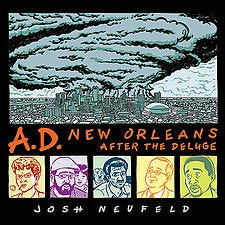So What, Who Cares (vol 2, issue 95) Why you can't shop your way to social change
Hello! Several of you thoughtfully forwarded me the link to "The Myth of the Ethical Shopper," and I encourage anyone who hasn't read it yet to do so. This is a money quote:
In the fast-fashion era, Western brands can’t afford the luxury of working with the same suppliers and ensuring that they meet the company’s standards. And so, rather than manage a giant, respirating network of factories themselves, most of them have outsourced this coordination to megasuppliers: huge conglomerates that can take a design sketch, split the production between thousands of factories, box up the goods and ship them to stores in less time than they’ll stay in style.
In other words, our accelerated cycle of consumption is feeding the problem.
This reminds me of the quote from the New Yorker's March 2014 article on time management:
[Joseph] Stiglitz predicts that Europeans will further reduce their working hours and become even more skilled at taking time off, while Americans, having become such masterful consumers, will continue to work long hours and to buy more stuff. TVs, he notes, “can be put in every room and in both the front and the back of automobiles.”
In any event, enjoy these reads on the costs of accelerated consumption, both temporal and ethical, and what's required to address these problems. Hint: It's not patronizing small, "authentic" brands.
*
And for newer readers, here's a round-up of past So What, Who Cares? issues on fast fashion, ethical consumption as a luxury item, and small-batch authenticity as the next big thing: vol 1, issue 7; vol 1, issue 24; vol 1, issue 29; vol 1, issue 60; vol 1, issue 63; vol 2, issue 35; vol 2, issue 44; vol 2, issue 78; vol 2, issue 80; vol 2, issue 82.
*
Your pop-culture note of the day: Paul Madonna's "All Over Coffee" comic series is tackling the experience of being evicted from a rental in San Francisco. He's captured the surreality of being a non-millionaire looking for a place to live in the city through lovely, detailed drawings and metaphors that are vivid and unsettling. It's a wonderful example of how powerful comic art is as a form of journalism.

Comics-based journalism is a tremendous asset for civic reporting because comic art can so concisely and elegantly convey a sense of place while also showcasing action. One of my favorite examples of this is Josh Neufeld's A.D.: New Orleans After the Deluge. His examination of five people rebuilding their lives in the wake of Hurricane Katrina is poignant and powerful precisely because he takes a mind-bogglingly huge natural disaster and sucks it down to an intimate, human scale -- and then he uses the inversion of that scale to convey the scope of all that was lost and how mighty the rebuilding has been.
A.D. began as a serial web comic on SMITH magazine, and the magazine has kept the site up-to-date and added supplemental material, like "SuperStorm Stories: A Red Hook Family," about one family's experience during Hurricane Sandy.
And I would be remiss if I did not mention the comics journalism Susie Cagle is doing to cover San Francisco and the Silicon Valley.
*
Are there typos? Copyediting is the only editing class I did not earn an A in. And I can't change any typos in the archives. I know. It irritates me too.
Suggestions for links gratefully received -- hit me up via Twitter and email.
Feedback is welcome. Again --hit me up via Twitter and email.
Really like this newsletter? TELL A FRIEND TO SUBSCRIBE! Then you can make pointed comments about how some people like receiving expressions of gratitude after they've passed on life-improving tips and oh, look, you have a bit.ly link for your Amazon wishlist right here!


